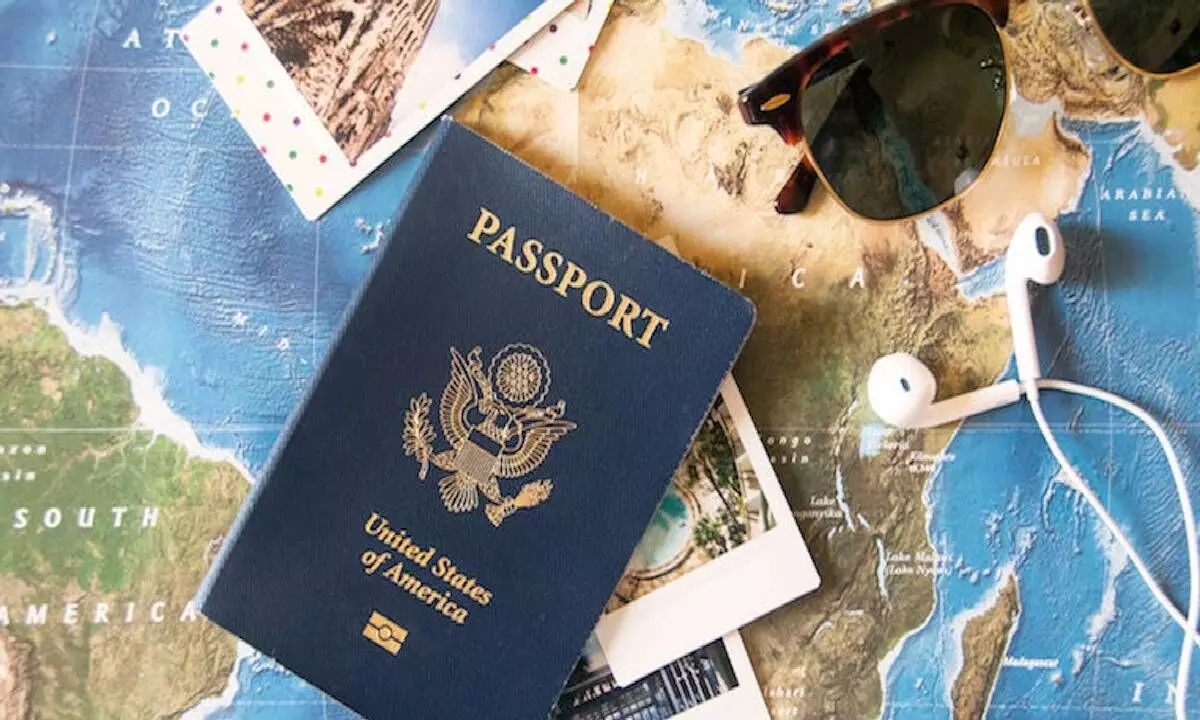Three global figures travel without passports across international borders
In certain parts of the world, there are a select few individuals who are exempt from carrying passports during their travels, regardless of their destination. These privileged individuals include Japan's Emperor Naruhito and Empress Masako, as well as the United Kingdom's current monarch, King Charles III. It is worth noting that Queen Elizabeth II, who reigned before King Charles III, also enjoyed this distinct privilege.
image for illustrative purpose

In certain parts of the world, there are a select few individuals who are exempt from carrying passports during their travels, regardless of their destination. These privileged individuals include Japan's Emperor Naruhito and Empress Masako, as well as the United Kingdom's current monarch, King Charles III. It is worth noting that Queen Elizabeth II, who reigned before King Charles III, also enjoyed this distinct privilege.
The reason behind this exemption lies in the issuance of a specific document that bears the name of the reigning monarch. In the case of the United Kingdom, the document is issued by "His Britannic Majesty's Secretary of State" and requests and requires all relevant authorities to allow the bearer to pass freely without any hindrance, while also providing necessary assistance and protection. This document is exclusive to the reigning monarch and is not extended to other members of the British monarchy, including Queen Consort Camilla. Consequently, Queen Consort Camilla, despite her marriage to the King, is still required to utilize a diplomatic passport for international travel.
Similarly, Japan's Imperial family follows a comparable practice. A Ministry document dated May 10, 1971, outlines the unsuitability of the Emperor and Empress of Japan to hold regular passports or undergo immigration and visa procedures like ordinary citizens. This rule, however, does not apply to other members of the Imperial family, including the crown prince and princess, who are mandated to hold diplomatic passports.
The implementation of these passport exemptions involves intricate coordination between the respective countries' representatives at both the departure and arrival points. Upon arrival, Japan's Emperor and Empress must present the ministry document, and the Ministry of Japan notifies the host country in advance. In the case of King Charles III, his private secretary, Sir Clive Alderton, assumes responsibility for managing the process, having served as a trusted advisor since 2006.
Although citizens of the United Kingdom and Japan may still require passports for international travel, these reigning monarchs enjoy unique privileges that set them apart. It is noteworthy that they are not only exempt from carrying passports but also benefit from visa-free access to numerous countries. In fact, British monarchs have visa-free access to 193 countries, making them the most privileged travelers from the United Kingdom. On the other hand, despite India being one of the largest economies globally, Indian citizens have visa-free access to only 59 destinations. However, there have been recent developments, such as Kazakhstan granting visa-free travel to Indians, further expanding their travel opportunities.
In summary, the passport exemption for certain individuals such as Japan's Emperor and Empress and the United Kingdom's reigning monarch stems from specific documents issued in their name, signifying their exceptional status. This privilege is exclusive to the reigning monarch and does not extend to other members of the royal families. The process involves close coordination between the relevant authorities in the departing and receiving countries, ensuring a smooth travel experience for these privileged individuals. While citizens of these countries may still require passports, the reigning monarchs enjoy visa-free access to a significant number of countries, enhancing their travel convenience and status.

